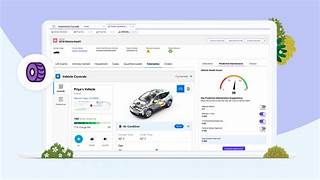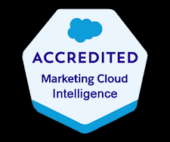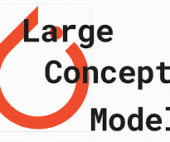What is Salesforce Automotive Cloud?
In September 2022, Salesforce introduced Automotive Cloud, a robust all-in-one platform tailored for the automotive industry. At first glance, it appears to be an ideal solution for businesses in this sector, but how well does it serve car dealerships? Drawing on experience both as a former auto dealership employee and in building Salesforce Dealership Management Systems (DMS), an in-depth exploration was undertaken to determine if this platform genuinely meets the needs of dealerships.
What is a Dealership Management System (DMS)?
A Dealership Management System (DMS) is a comprehensive software suite designed to manage the daily operations of a car dealership. It includes modules for sales, service, inventory management, vehicle lifecycle management, customer relationship management (CRM), and more. Essentially, it acts as the dealership’s corporate operating system, housing and processing customer data to generate valuable insights.
What Does This Mean for Salesforce Consultants?
Salesforce consultants with specialized expertise often find it easier to secure jobs and command higher rates compared to their generalist peers. This is especially true in niche areas like Automotive Cloud, where demand for specialized knowledge is high, and businesses are willing to invest in quality resources.
In today’s uncertain economic climate, job security is a priority. Developing expertise in niche areas like Automotive Cloud can be a strategic move. As more car dealerships adopt this new technology, consultants with relevant experience will find ample opportunities to leverage their skills and meet the growing demand for DMS solutions.
First Impressions of Automotive Cloud
At first glance, Automotive Cloud offers a promising set of tools for managing various aspects of dealership operations, from sales and service to inventory management and CRM. However, initial impressions were mixed.
Some features, like Vehicle Definitions, were initially overwhelming and unclear in their application. For example, while Automotive Cloud aggregates information about a specific vehicle model and its components (like engine, transmission, etc.), it lacks a CPQ (Configure Price Quote) feature. This omission is disappointing, as CPQ is crucial for configuring vehicles within the Salesforce interface. However, fear not, as third party CPQ tools are available.
On the flip side, Automotive Cloud’s vehicle lifecycle management features are impressive. It allows for comprehensive tracking of a vehicle’s lifecycle, including purchase, maintenance, and decommissioning cycles. This is especially beneficial for dealerships, as much of their profit comes from post-sale services like warranty maintenance.
What Salesforce Products Does It Use?
A closer examination of the components within Automotive Cloud reveals that it is a mix of several Salesforce products, including:
- Sales & Service Cloud
- Manufacturing Cloud
- Consumer Goods Cloud
- Retail Solution
- Salesforce Platform
Additionally, Automotive Cloud includes customizations specifically designed for the automotive industry. For those interested in a more in-depth understanding, the Automotive Cloud documentation provides detailed explanations of the platform’s use cases.
Automotive Cloud Data Model
One of the first steps in exploring a new product is examining its data model, which provides insights into the product’s design and intended use.
In Automotive Cloud, Salesforce focuses on several key dimensions:
- Client Dimension: Represented by a household array of objects linked to accounts. Interestingly, personal accounts are disabled by default, but the household dimension is widely used across multiple clouds, including Automotive Cloud.
- Vehicle Dimension: This dimension tracks the lifecycle of vehicles. While flexible, it heavily relies on Service Cloud’s Asset objects. Configuring vehicles requires significant customization, and businesses may struggle with decisions like whether to treat certain components (like paint) as separate assets or integral parts of the vehicle.
- Distribution Domain: Salesforce seems to have designed Automotive Cloud with distributors or OEM manufacturers in mind rather than dealerships. This domain includes objects for routing potential customers to specific dealers, which may be where the true value of Automotive Cloud lies.
A Quick Overview of Capabilities
Based on a thorough understanding of dealership operations, Automotive Cloud’s features most relevant to car dealers were evaluated:
- Vehicle Lifecycle Management: This is a critical requirement for any DMS. Automotive Cloud excels in this area, particularly in its non-linear milestone management, which is useful in scenarios where vehicles are sold before they are produced.
- Quotes: While the quoting functionality is straightforward for those familiar with Salesforce, the absence of CPQ is a drawback, especially for dealerships that rely on vehicle configuration within the Salesforce interface.
- Inventory Management: Automotive Cloud allows tracking of spare parts across multiple locations. However, the data model requires significant modification to link spare parts to the right models and price books, and there is no built-in mass update feature for this workflow.
Is Salesforce Automotive Cloud Worth Learning for Car Dealers?
The verdict is mixed. Automotive Cloud is not a perfect DMS for dealerships; it includes excessive features that may go unused while missing some critical functionalities. However, it is a great fit for auto manufacturers or distributors due to its built-in functionality for managing dealerships and manufacturing-related tasks.
Is it worth learning? Absolutely. Automotive Cloud is a new offering from Salesforce, and currently, there isn’t an “Accredited Professional” badge available for it. By diving into Automotive Cloud early, Salesforce consultants can gain an edge over their peers and attract more employers.
Moreover, Automotive Cloud combines multiple Salesforce Clouds, making it an excellent opportunity to learn Salesforce and familiarize oneself with complex data models. With its limited number of Flows and code, the learning curve is manageable, offering consultants a chance to build custom solutions that could become a selling point in their careers.













